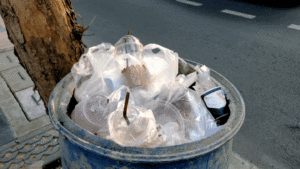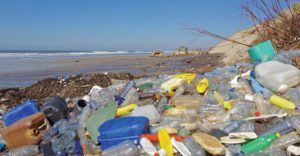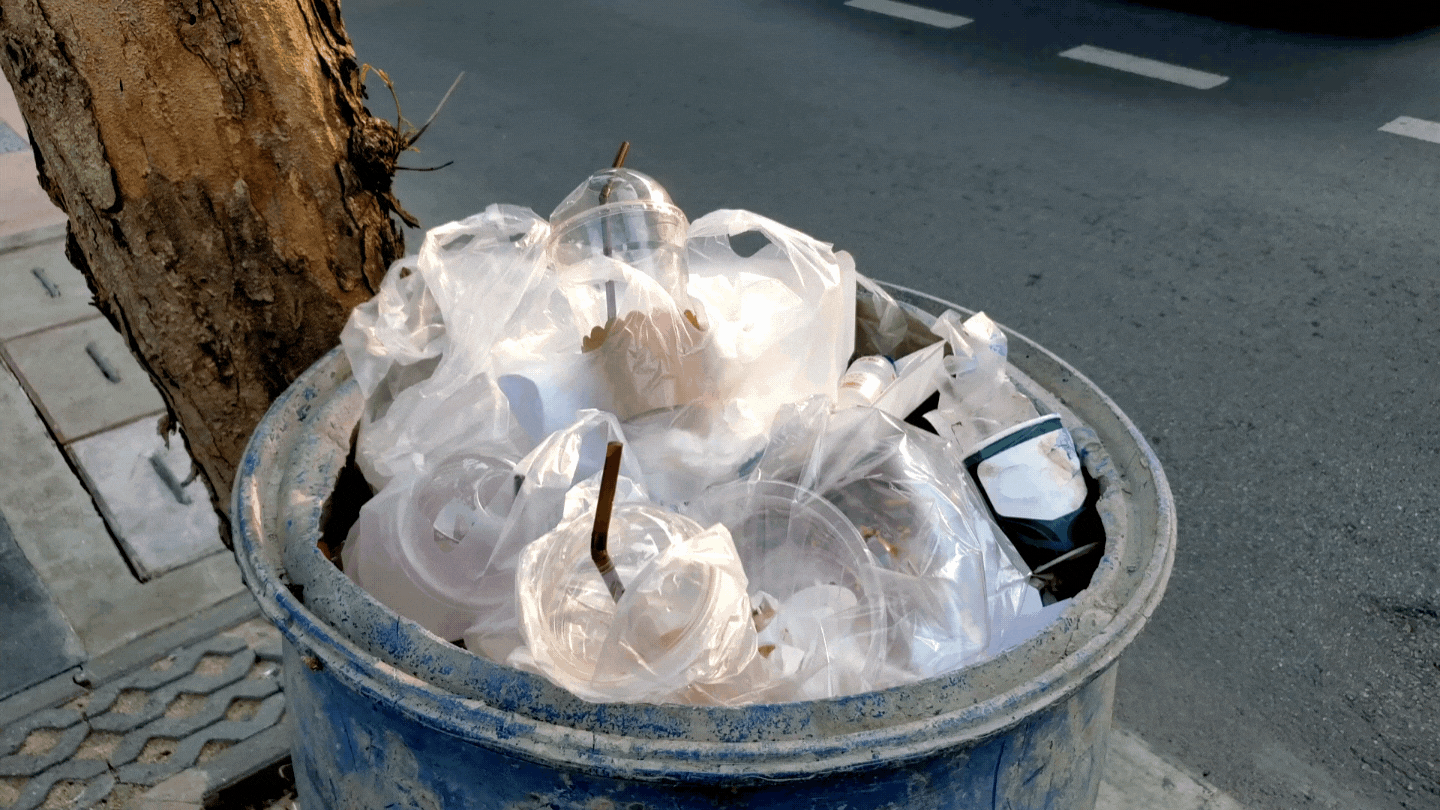
(Feb 07, 2022) Philadelphia, PA For those of you who are paying attention to the plastic bag “ban” in Philadelphia, you may be confused as to where it stands; if so, that’s understandable.
Clean Air Council (the “Council”) began advocating for a reduction in single-use plastic bags in Philadelphia well over a decade ago. Environmental groups and city residents, including the vast majority of City Council, understand that we must start to reduce our use of single-use items and have pushed for this for so long because it’s the right thing to do.
The week after Philadelphia City Councilmember Squilla introduced legislation to ban single-use plastic bags and put a fee on all other single-use bags in Philadelphia, a small group of Republican state legislators introduced legislation to usurp the authority of every municipality in the state to adopt such an ordinance. This group of legislators, who do not live or work in Philadelphia, decided that they knew better than those of us who do live, work, and recreate in the City of Philadelphia. The preemption legislation was inserted into a “must-pass” fiscal bill and became law. The new law blocked all municipalities in Pennsylvania, including Philadelphia, from enacting or enforcing any laws that would affect single-use plastic or polystyrene (Styrofoam).
This first preemption law was put in place for one year and required that two state agencies study the economic impact of these types of prohibitions on the use of single-use plastic bags. Unsurprisingly, and even using industry-funded data, the studies showed that there was a benefit to adding a fee for single-use bags, and “the report [ ] concluded that a fee on single-use bags would save consumers $82 million a year while taking nearly 2 million bags out of circulation.” The Council believes these numbers greatly underestimate both the benefits to consumers and the number of bags likely to be removed from “circulation.” Additionally, the calculated cost to consumers does not include the “cost to taxpayers” in cleanup costs and other real costs to communities from the damage and litter single-use bags account for.
The Pennsylvania Legislature, even before the study they ordered was complete, renewed the preemption, this time including language that banned the enforcement of any existing local legislation. The Council joined with Philadelphia, Pittsburgh, West Chester, Narberth, and Lower Merion and filed a lawsuit against the state to protect the authority of municipalities to enact and enforce laws to protect their residents.
These local governments and the Council argued that the preemption law was unconstitutional in the way it was passed and that it violated Pennsylvanian’s right to a clean environment as guaranteed by the state’s Environmental Rights Amendment. While the litigation was ongoing, Philadelphia put a pause on its enforcement of the already passed single-use bag law and other municipalities did as well. Litigation almost always goes very slowly, and ultimately, the preemption expired and was not reinserted into the current fiscal code. We believe because of the lawsuit. The litigation was therefore withdrawn and the preemption is no longer law.
As of right now, it is unlawful for any retailer in Philadelphia to provide a single-use plastic bag to a customer at the point of checkout or delivery. This is a huge victory.
The Council is currently working with a coalition of other groups to amend the existing Philadelphia law to include a fee on all other bags, which is the most effective way to reduce single-use bags. The Council is also working with other municipalities throughout Pennsylvania to introduce various single-use legislation.
For more information, contact Logan Welde, Staff Attorney, lwelde@cleanair.org.

Plastics are slowly killing life on earth. We enjoy the convenience of plastics but delude ourselves that we can dispose of them safely. We give little thought to the damage done to the environment and to public health that results from extracting the fossil fuel needed to produce and manufacture plastics. We worry about climate change but stubbornly do not make the connection between plastic production and emissions of greenhouse gases. Most people falsely believe that recycling plastics is the answer — even though the vast majority of plastics can not be recycled and there is no real market for recycled plastics. Most of us will remember that distressing video of a sea-turtle with a plastic straw stuck in its nose. That’s happening every day. Plastics don’t really break down, they turn into dangerous microplastics that we’re now consuming.
Plastics are everywhere — some are necessary, many are not. Food wrappers, cigarette filters, single-use plastic bags, plastic straws, styrofoam.
The easiest plastics to avoid are the single-use plastic items we use for convenience or out of habit. As residents, we pay a high financial cost for single-use plastics. The City of Philadelphia spends between $9 million and $12 million every year cleaning plastic bags from the streets, sewers, and bodies of water. Philadelphia alone uses approximately one billion plastic bags per year, many of which end up as litter in our neighborhoods. Pennsylvania taxpayers spend over $13 million every year just cleaning up roadside litter. This money should be spent on more important things such as public education.
The plastic and petrochemical industry mislead the public by marketing plastics as “recyclable” when in reality, less than 9% of all plastic ever produced has been recycled. There is no viable solution for plastic waste. According to the United Nations Environment Programme, 12% of plastics are burned in incinerators (increasing air pollution in communities of color where waste incinerators are typically located) and 79% of plastics are deposited in landfills, dumps or end up in the natural environment.
Nearly all plastics produced derive from oil, fracked gas, and coal — dirty, non-renewable resources. Plastics and the climate crisis go hand-in-hand: plastic production depends on fossil fuels, and fossil fuels rely on plastic production.
Another hidden cost to single-use plastics: human health. For instance, Royal Dutch Shell’s 386-acre ethane cracker—built to make plastics— is set to power up this year about 25 miles outside of Pittsburgh in Beaver County. Shell’s plant will release 159 tons per year of fine particulate matter and 522 tons per year of volatile organic compounds (VOC), according to the Council’s 2014 Health Impacts Assessment. VOCs exacerbate health conditions including asthma, cardiovascular disease, cancer, endocrine disruption, and adverse birth outcomes.
There are also terrifying new links being made between microplastics and other toxins. Scientists are finding that microplastics accumulate toxins like DDT and PCBs from trace levels that may already exist in the environment, and deliver them to wildlife and humans that eat them, often bioaccumulating through the food chain.
The Council spent more than 10 years advocating to pass a Philadelphia single-use plastic bag ban. However, Philadelphia’s plastic bag ban was delayed one year due to COVID-19 and will now go into effect on July 1, 2021.
The Council advocates for turning off the “plastics tap,” and is fighting legislation that would limit local government’s ability to regulate single-use plastic items. Representing Pennsylvania residents in court, the Council joined the City of Philadelphia, Borough of West Chester, Borough of Narberth, Lower Merion Township, and the City of Pittsburgh in a lawsuit to overturn the state’s unconstitutional preemption of municipalities from enacting or enforcing single-use plastic legislation. The Council is fighting for local residents and leaders to implement sustainable solutions locally to plastic pollution.
It’s time to end our addiction to plastic, enact local solutions, and choose to protect the environment over convenience. Start by ditching single-use plastics for Plastic Free July and spreading the word about plastic pollution.
Written by Jessica Bellwoar, Development Officer, jbellwoar@cleanair.org. For more information on the PA Plastics Preemption lawsuit contact, Logan Welde, Staff Attorney, lwelde@cleanair.org.
Tags: Plastics, recycling, waste, zero waste, litigation

